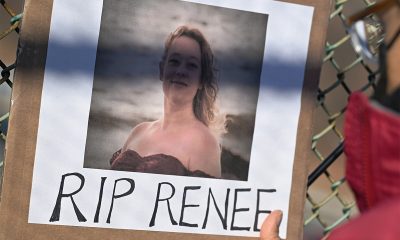Local
Brother Help Thyself awards $75,000 in grants
34 area LGBT groups benefit

Baltimore Mayor Catherine Pugh attended the BHT awards ceremony on Jan. 20. (Photo by Maryland GovPics; courtesy Wikimedia Commons)
The LGBT charitable group Brother Help Thyself on Jan. 20 presented grants totaling $75,000 to 34 non-profit organizations serving the LGBT and HIV/AIDS communities in the Washington, D.C.-Baltimore region.
BHT presented the grant awards in a ceremony held at the Baltimore Eagle, a gay bar in Baltimore, in which Baltimore Mayor Catherine Pugh and Maryland Department of Health official Jeffrey Hitt attended.
“The story isn’t that BHT gave out $75,000 today,” said BHT’s grant reception chairman. “The story here is that in the era we find ourselves in today, where our freedoms and rights, and healthcare choices are being threatened, these 34 non-profits, without our help, are out there each day and every day fighting to preserve and defend those rights and freedoms in support of our community,” he said.
“We are proud to play a small role in that work,” he added.
In addition to awarding the grants, BHT issued four annual community service awards: The Anthony J. Bachrach Award for Outstanding Service to an individual to Baltimore activist Rik Newton-Treadway; the Billy Collison Award “to an underdog and grantee” to the D.C. Latino GLBT History Project; the George Dodson Business Award to a business supportive of the LGBT community to the Baltimore Eagle; and the Founders Award to a non-profit to the D.C. Wanda Alston Foundation.
BHT released the following list of the 34 organizations that received grants at the Jan. 20 ceremony:
AIDS Action Baltimore, $4,140
Athletes United for Social Justice of D.C. ‘The Grassroots Project,’ $1,130
Black, Gifted & Whole, Inc. of D.C., $5,830
Breaking Ground of D.C., $2,930
Capitol Hill Arts Workshop of D.C., $830
Casa Ruby, Inc. of D.C., $4,390
D.C.’s Different Drummers, $1,130
D.C. Center for the LGBT Community, $2,360
Dickey Memorial Presbyterian Church of Baltimore, $150
Heart to Hand, Inc. of Prince George’s County, $3,410
Gay Men’s Chorus of Washington, D.C., $560
FreeState Justice of Maryland, $920
Gay & Lesbian Community Center of Baltimore, $770
Health Options & Positive Energy Foundation (HOPE DC), $3,790
HIPS D.C., $3,580
HopeSpring, Inc. of Baltimore, $3,350
D.C. Latino GLBT History Project, $2,200
LULAC Council 11125 of D.C., $1,000
Mary’s House or Older Adults, Inc. of D.C., $8,280
Metro D.C. PFLAG, $850
Mid-Atlantic Deaf & Interpreter Fund of Baltimore, $1,670
Mosiac Theater Company of D.C., $350
New Ways Ministry, Inc. of D.C., $1,980
PFLAG Columbia-Howard County, Md., $1,020
PFLAG Westminster, Md., $1,020
Rainbow History Project Foundation of D.C., $790
Rainbow Theater Project of D.C., $540
SMYAL of D.C., $1,690
St. Margaret’s Church Vestry – ‘Charlie’s Place’ of D.C., $3,030
Transgender Education Association of Greater Washington, $1,460
UUC of Rockville Rainbow Youth Alliance, $4,740
Wanda Alston Foundation of D.C., $2,470
Washington Renegades Rugby Football Club, $560
Maryland
Layoffs and confusion at Pride Center of Maryland after federal grants cut, reinstated
Trump administration move panicked addiction and mental health programs
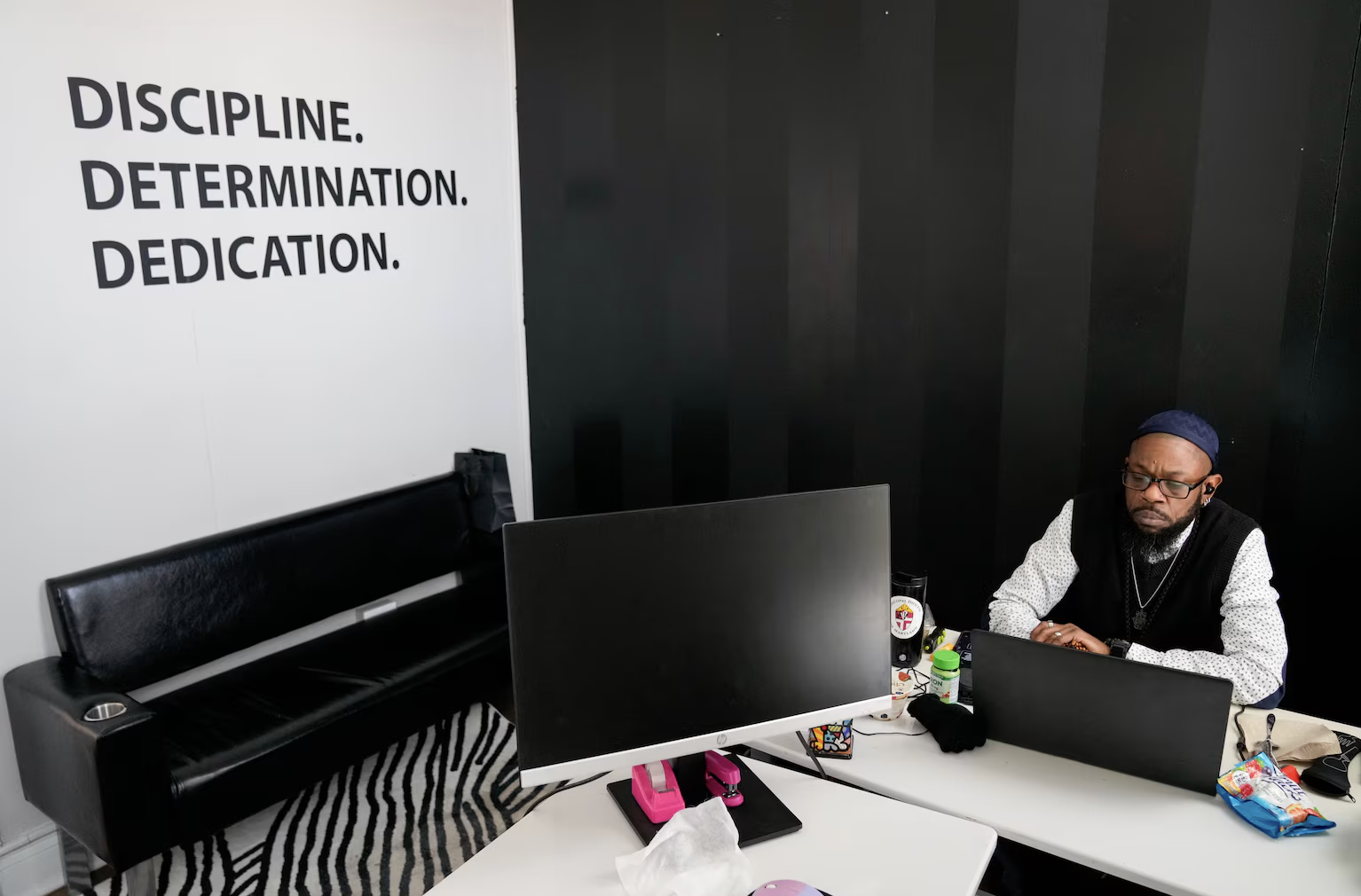
By ALISSA ZHU | After learning it had abruptly lost $2 million in federal funding, the Pride Center of Maryland moved to lay off a dozen employees, or about a third of its workforce, the Baltimore nonprofit’s leader said Thursday.
The group is one of thousands nationwide that reportedly received letters late Tuesday from the Trump administration. Their mental health and addiction grants had been terminated, effective immediately, the letters said.
By Wednesday night, federal officials moved to reverse the funding cuts by the Substance Abuse and Mental Health Services Administration, estimated to total $2 billion, according to national media reports. But the Pride Center of Maryland’s CEO Cleo Manago said as of Thursday morning he had not heard anything from the federal government confirming those reports.
The rest of this article can be read on the Baltimore Banner’s website.
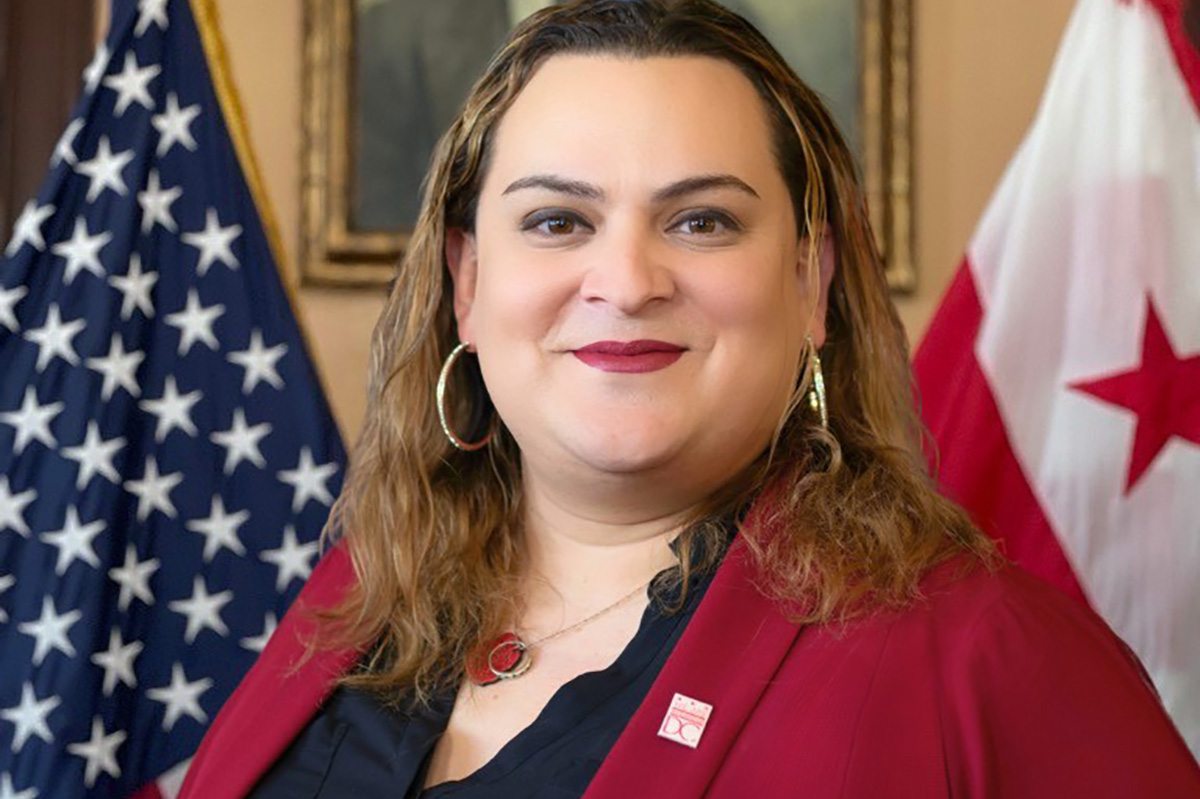
The Comings & Goings column is about sharing the professional successes of our community. We want to recognize those landing new jobs, new clients for their business, joining boards of organizations and other achievements. Please share your successes with us at [email protected].
Congratulations to Vida Rangel, JD/MPP on her promotion to Deputy Director of the Mayor’s Office of Talent and Appointments. Rangel is now the highest-ranking transgender official in the history of District government. On accepting the position Rangel said, “I am proud to step into this leadership role and to continue serving my communities. Our District is full of passionate and knowledgeable people who are committed to public service, and it is an honor to help them explore opportunities to serve their neighbors.”
Rangel has previously served in this office as Director of Operations. Prior to this as Bargaining Committee Chair, Organizing Committee, NCTE United, Nonprofit Professional Employees Union IFTPE Local 70. As Policy Counsel, National Center for Transgender Equality; and Elizabeth Warren for President, lead organizer, Illinois 4th Congressional District. She has worked with, and served on boards of, The Black & Pink National, Federal City Performing Arts Assoc., and LAGBAC.
Rangel earned her bachelor’s in sociology from Sam Houston State University; master’s of Public Policy from Loyola University, Chicago; and Juris Doctor, Loyola University, Chicago.
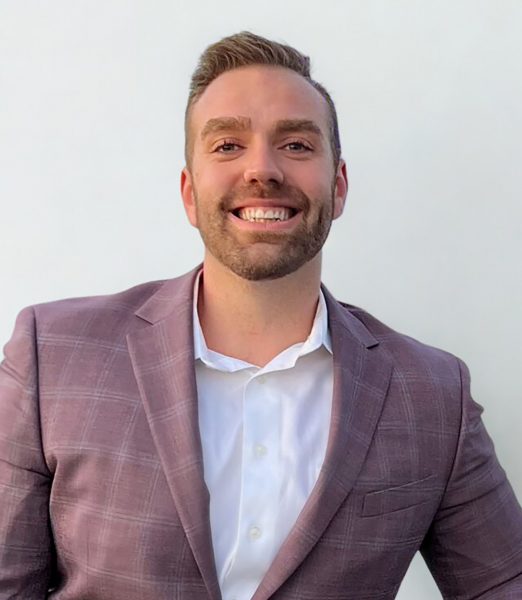
Congratulations also to James Conlon new PFLAG vice president of Development & Philanthropic Partnerships. Upon his appointment Conlon said, “It is an absolute privilege to join PFLAG National and lead their Development & Philanthropic Partner team into a new era. Right now, LGBTQ+ people and their families are terrified of what the future might bring, and PFLAG must continue to be there. My job is to ensure PFLAG strongly endures and thrives, because never has there been a clearer time for our community to unite in fighting for the dignity and well-being of every LGBTQ+ person.”
Brian Bond, CEO, PFLAG National, said, “At a time when PFLAG National programs and participation in them have grown significantly, even as corporate giving has left a $1.3M gap in our funding, James is a critical new addition to the team. With his vast expertise, James will drive our growth and ensure that PFLAG continues meeting the needs of families and communities across the country.”
Conlon is a seasoned fundraiser who has spent extensive time working with advocates, supporters, and leaders, of the LGBTQ+ movement to understand how to effectively support the community. He began his career as an intern in the Massachusetts State House. He has helped raise more than $60 million for critical causes and candidates. Prior to joining PFLAG James oversaw LGBTQ+ investments and fundraising, with the Democratic National Committee (DNC). Prior to that he served in the same role for Harris-Walz 2024, and additionally served in senior fundraising positions for the Senate Majority PAC, as well as for Representatives Josh Gottheimer, and Conor Lamb.
Conlon earned his bachelor’s degree in political science and government from the University of Massachusetts, Amherst.
District of Columbia
D.C.’s annual MLK Peace Walk and Parade set for Jan. 19
LGBTQ participants expected to join mayor’s contingent
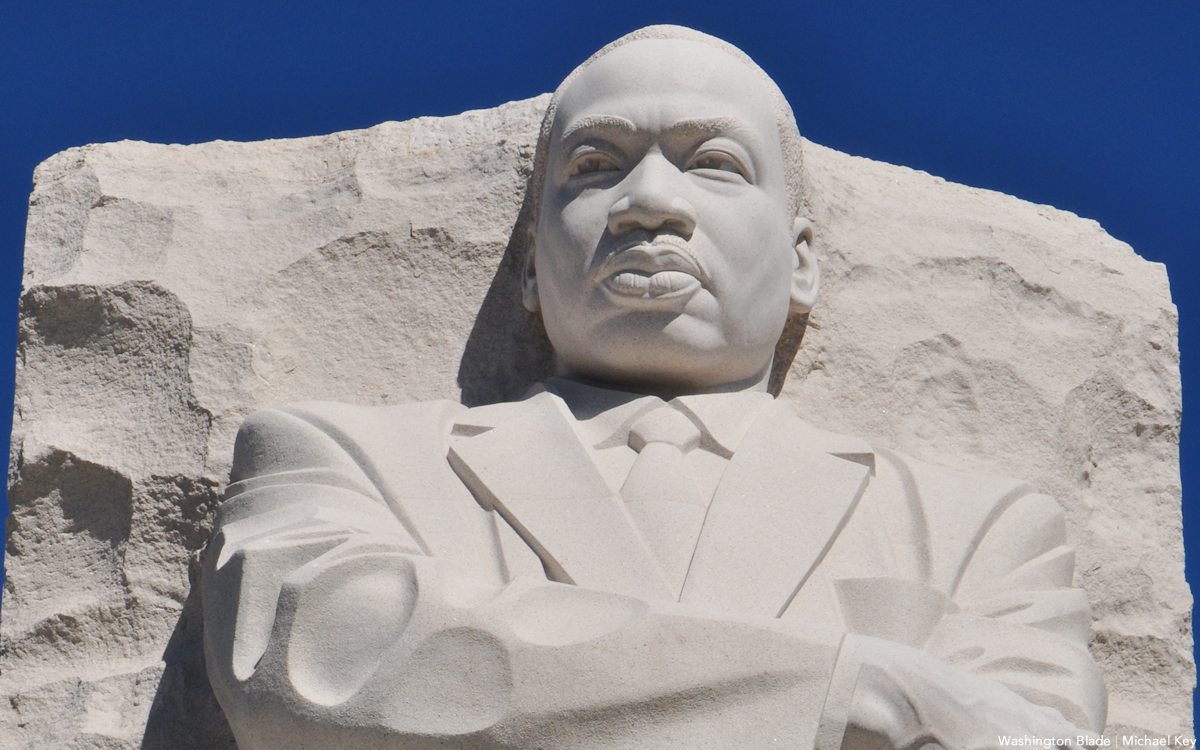
Similar to past years, members of the LGBTQ community were expected to participate in D.C.’s 21st annual Martin Luther King Jr. Day Peace Walk and Parade scheduled to take place Monday, Jan. 19.
Organizers announced this year’s Peace Walk, which takes place ahead of the parade, was scheduled to begin at 10:30 a.m. at the site of a Peace Rally set to begin at 9:30 a.m. at the intersection of Firth Sterling Avenue and Sumner Road, S.E., a short distance from Martin Luther King Jr. Avenue.
The Peace Walk and the parade, which is scheduled to begin at 11 a.m. at the same location, will each travel along Martin Luther King Jr. Avenue a little over a half mile to Marion Barry Avenue near the 11th Street Bridge where they will end.
Japer Bowles, director of D.C. Mayor Muriel Bowser’s Office of LGBTQ Affairs, said he and members of his staff would be marching in the parade as part of the mayor’s parade contingent. In past years, LGBTQ community members have also joined the mayor’s parade contingent.
Stuart Anderson, one of the MLK Day parade organizers, said he was not aware of any specific LGBTQ organizations that had signed up as a parade contingent for this year’s parade. LGBTQ group contingents have joined the parade in past years.
Denise Rolark Barnes, one of the lead D.C. MLK Day event organizers, said LGBTQ participants often join parade contingents associated with other organizations.
Barnes said a Health and Wellness Fair was scheduled to take place on the day of the parade along the parade route in a PNC Bank parking lot at 2031 Martin Luther King Jr. Ave., S.E.
A statement on the D.C. MLK Day website describes the parade’s history and impact on the community.
“Established to honor the life and legacy of Rev. Dr. Martin Luther King, Jr., the parade united residents of Ward 8, the District, and the entire region in the national movement to make Dr. King’s birthday a federal holiday,” the statement says. “Today, the parade not only celebrates its historic roots but also promotes peace and non-violence, spotlights organizations that serve the community, and showcases the talent and pride of school-aged children performing for family, friends, and community members.”
-

 U.S. Supreme Court4 days ago
U.S. Supreme Court4 days agoSupreme Court hears arguments in two critical cases on trans sports bans
-

 Photos5 days ago
Photos5 days agoPHOTOS: ‘ICE Out For Good’ Sunday protests
-

 Virginia5 days ago
Virginia5 days agoMark Levine running in ‘firehouse’ Democratic primary to succeed Adam Ebbin
-

 Arts & Entertainment5 days ago
Arts & Entertainment5 days agoTeyana Taylor, Erin Doherty have big night at Golden Globes

















